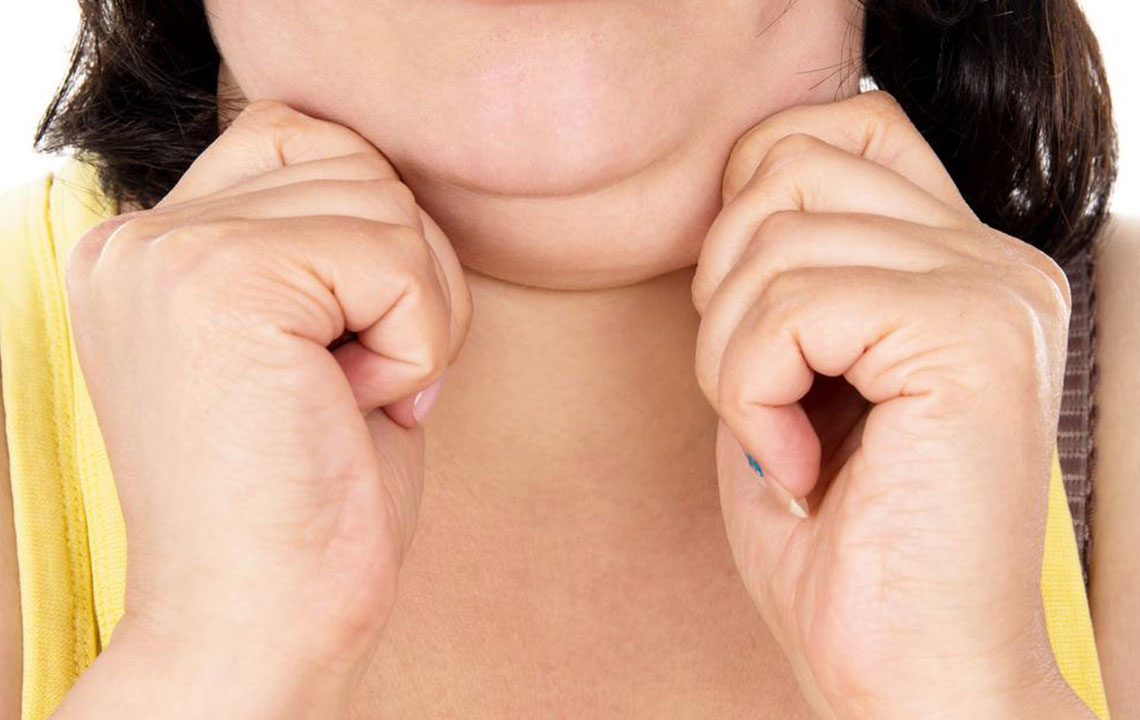A double chin can be an immediate put off for many people when they look into the mirror. There are a few steps you could do to tighten the neck skin.
Here is a list of some specific exercises targeting the chin areas and some other method to reduce the double chin on your face.
- Straight jaw movements : Push your head back and look towards the ceiling. Then move your lower jaw forward to feel a stretch under the chin. Now hold this position for 10 seconds. Eventually, relax and return your face to a normal position.
- Ball exercises :
In this exercise, put a 9- to10-inch soft ball under your chin. Now press the chin down against the ball for 20-25 times.
Pucker up: Now as we did in the first exercise, with your head tilted back, look at the ceiling. After this, pucker your lips like you are trying to kiss the sky. Do this for 10 seconds. Tongue stretch: In the normal position, stretch your tongue out as far as you can. After this, try to touch the nose with your tongue and stay in this position for 10 seconds. Neck stretch: Keep your head in the same position as the first exercise and touch your tongue to the roof of your mouth.Try to hold this position for 5 to 10 seconds and release. This movement would help you tighten the neck skin.
Bottom jaw movements: Move your head back and look at the ceiling. Then turn your head to the right. Now slide your bottom jaw forward and hold it for 10 seconds. Similarly, repeat in the other direction. Reducing the double chin through diet and exercise
Some people have double chin due to weight gain. In this case, losing the excess weight may help to reduce it and help you tighten the neck skin. Commit to eating a healthy diet and exercise regularly.
Other treatments
At times, people go for surgical procedures such as lipolysis and mesotherapy to reduce their double chins. You can consult with a registered doctor about these procedures.
Hopefully, these methods would help you reduce your double chin and tighten your neck skin.
Disclaimer:The content of the articles discussing symptoms, treatments, health conditions, and side effects is solely intended for informational purposes. It is imperative that readers do not interpret the information provided on the website as professional advice. Readers are requested to use their discretion and refrain from treating the suggestions or opinions provided by the writers and editors as medical advice. It is important to seek the help of licensed and expert healthcare professionals when necessary.


